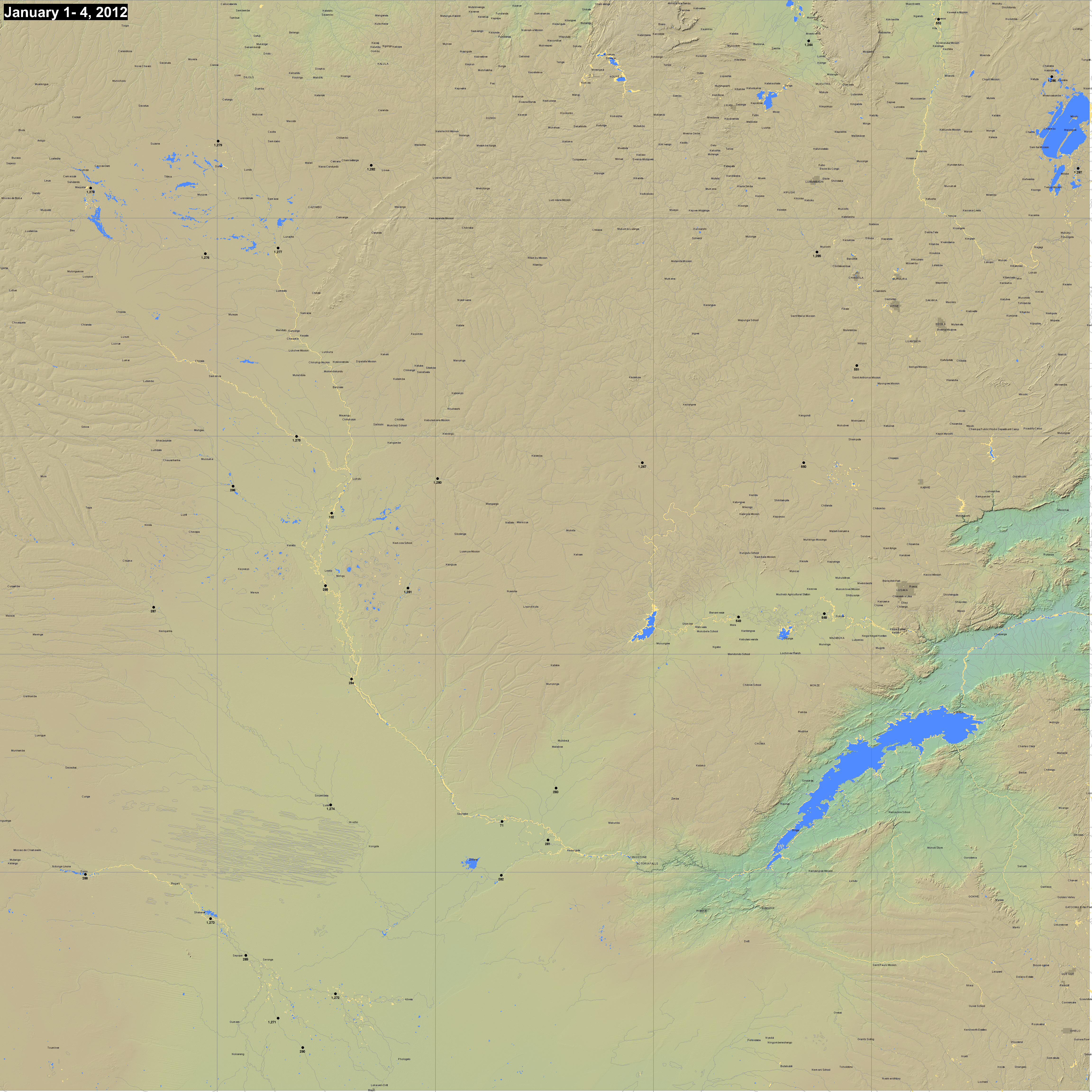



This display shows areas of reduced surface water during during times of drought. See the Flood Display for areas of expanded surface water during floods.
Shown in dark blue is the extent of current surface water as imaged by the two MODIS sensors aboard Terra and Aqua. Water areas are accumulated over 14 days to remove obscuration by cloud cover. Yellow indicates newly dry land, that was covered by surface water on a reference date (February, 2000, from the Shuttle Radar Topography Mission Water Body dataset). As lakes, reservoirs, and rivers shrink, yellow areas appear and increase in size.
Known errors: 1) In mountainous regions, terrain shadows mimic surface water and are mis-classified as water in our current algorithm; we are working to reduce such noise. 2) The reference water is at much higher spatial resolution (90 m instead of 250 m). As a result, many small or narrow water bodies are shown in yellow, but are not necessarily locations of reduced surface water. Larger yellow areas, however, should have been classified as water during the current 14 day accumulation, and thus represent significant surface water contraction. The contraction of lakes and artificial impoundments (reservoirs) in particular is well documented.
Clickable black dots link to experimental AMSR-E river discharge estimates. The shaded relief background is from topography provided by NASA SRTM data. For the most recent MODIS-based surface water available, see the NASA NRT Experimental Flood Maps. Recent GIS data from the automated MODIS-LANCE NRT processor for this display are located at http://csdms.colorado.edu/pub/flood_observatory/MODISlance/ . See also the technical description, and a history of updates, when available, via powerpoint slides.
